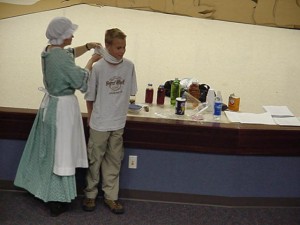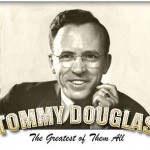It’s October and for those of us with a family member dealing with Type 1 Diabetes that means….flu shots. Hands up anyone who has heard one of the following:
1, “I had a flu shot once…first thing I did when I got home was throw up and spent the next week in bed…never again.”
2. “I’ve never had a flu shot and never had the flu…lots of (insert favourite nostrum from ‘fresh orange juice’, ‘whole bulb of garlic smoothie’ to ‘wearing an old sock around the throat’ here) is all you need.
3. “It’s all a plot by the pharmaceutical companies”
4. “What, don’t you know it will give your kid autism?” (this is frequently mentioned by people who wouldn’t recognize autism spectrum disorder if it stood in their living room juggling chainsaws….)
Of course this isn’t restricted to those of us who happen to be in the ‘chronic disease’ community. We just deal with it on an annual basis. New mothers also go through the debate when their little bundles of love face that traumatic first round of immunizations.
 When my oldest was a cuddly bundle of promise I dragged myself out to mother/babe groups in hopes of finding human companionship. I had coffee with one uber-mom who sized up my daughter and asked if she’d had her polio immunization. On hearing she was up to date on all her shots, I was directed to change her diaper on the bathroom floor instead of the change table. She might throw weakened polio viruses, you see. That way she could keep the door closed and dettol the room before her little widgums could be accidentally exposed.
When my oldest was a cuddly bundle of promise I dragged myself out to mother/babe groups in hopes of finding human companionship. I had coffee with one uber-mom who sized up my daughter and asked if she’d had her polio immunization. On hearing she was up to date on all her shots, I was directed to change her diaper on the bathroom floor instead of the change table. She might throw weakened polio viruses, you see. That way she could keep the door closed and dettol the room before her little widgums could be accidentally exposed.
She was concerned vaccinating her boy could either kill him or cause him to be somehow less than perfect due to the big pharma conspiracy. Matter of fact.
Oh. I see. Gee, look at the time–I have to get home before the line up at the laundry rocks down by the river gets too long….
Fast forward 12 years to when my daughters are in school and whooping cough has hospitalized one of their classmates and several others will be kept at home for months. The school sent home a notice warning of the Pertussis outbreak in the school and to make sure immunizations and boosters are up to date.
Now I am older than dirt. I admit this. But I remember parents in those days were good little sheep who made sure we were all inoculated against anything for which there was a vaccine. Oddly enough, I don’t recall any Pertussis outbreak occurring the entire time I was in school. Or for many years afterwards.
I do recall reading about it in books or seeing it in movies about pioneer life. A child coughing to the point of gagging, a sheen of fever; the doctor walking out of the room, dejected, closing the door behind him as we briefly glimpse a weeping woman throwing herself onto the bed clutching at her now silent child.
A bit much? Okay, the mortality rate for Pertussis isn’t as high as, say, being hit by a train but it is substantially higher by a factor of 1000 over the mortality rate of complications from the vaccine. Pertussis also leads to life long complications like asthma, COPD and the certain knowledge your parents are total dumb asses. Okay…that’s more like a complication of adolescence but it continues long into adulthood, providing you survive a childhood in their care.
Having a child with Type 1 diabetes cuts out all the well meaning arguments and any doubts you may harbour about the efficacy of this vaccine mumbo-jumbo. The fact of the matter is even a simple flu can wreak havoc on a person with a compromised immune system. The inability to keep food or fluids down isn’t merely inconvenient: it’s a medical emergency to the diabetic.
So, the bottom line here is that this year’s flu vaccine is available and your local health clinic will be announcing times when to get your flu shot.
As for an inoculation against ignorance…that one hasn’t been perfected yet. I recommend a short, sharp smack upside the head.
If you live in BC go here to find your local clinic and hours http://www.health.gov.bc.ca/flu/
Some other interesting links:
A great blog about infectious diseases and protecting your kids: http://blog.pkids.org/
(this entry about pertussis caught my attention) http://blog.pkids.org/2010/07/
General information about anything medical but careful about looking at some of the pictures…http://www.medicinenet.com/flu_vaccination/article.htm
The Canadian Gov’t’s 2 cents worth http://www.phac-aspc.gc.ca/im/index-eng.php
And for the Americans: http://www.cdc.gov/flu/index.htm



